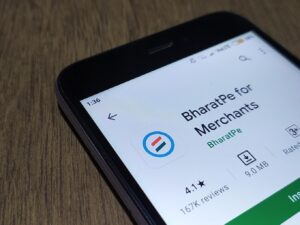The three Cs of Content, Commerce and Community, when combined efficiently, has seen many businesses thrive. Saurabh Saxena, Founder of Uable, an app dedicated to teens, has also turned to the three Cs model to push forth his Bengaluru-based startup , which first started as an edtech platform focussed on life skills for teens.
“I wanted kids to be able to develop skills which are not taught in the classroom or any books. But like most edtech startups, after a point, things come down to the same level. You have to spend more to make people pay for your course. That’s because taking an online course is not a habit. You have to convince people about it. This was also happening with Uable,” says Saurabh, in an interaction with YS.
Uable has a team of 70 members
Teenagers today are a different lot. With affordable smartphones, access to dirt-cheap internet and a pandemic-led lockdown pushing them to be online more than ever before, friendships and communities are being formed in the confines of the virtual world.
“In today’s world, kids can be anything. They don’t need to be just doctors and engineers. Gaming, fashion, fine arts, among others, are all in their approach. And kids know that,” says Saurabh.
Creating the new Uable
Keeping this in mind, Uable started by creating multiple clubs including fashion, gaming, food, drawing, marketing, motivation, and money. These groups only have kids and no parents or people from higher age groups. This privacy and camaraderie is what makes kids want to stay in the clubs, according to Saurabh, who earlier co-founded Vendatu, and started Uable for children between six to 16 years.
Currently, Uable’s use base comprises teenagers between 13 and 19. However, people aged 20 and 21 are also allowed on the platform, but only to create content, according to the founder.
As of now, the firm relies on users’ Google and Facebook login information to verify their accurate age, apart from having faith on users to enter their correct age.
Uable has also set up a 15-member moderation team, who keep a watch for flagged content. “We have a strong user and content reporting mechanism. Any user sharing teen irrelevant content or anything inappropriate is flagged off and suspended from the app. This power (to report inappropriate content) is given to our teen users as well,” says Surabh. The startup has a team of 70 members.
Credit: YS Design
In March 2021, when Saurabh and his team started pivoting to a ‘clubs and a community for teenagers’ from being a pure play edtech platform, it took the team about three to four months to build the new ecosystem. The team started testing out their new community model, accessible to anyone, in August-September the same year.
As of now, the free-to-use platform hosts about 22 clubs on the app, with over 200,000 monthly active users (MAUs). The goal is to grow this to at least one million users in the next four to six months. “If we can achieve that kind of growth, then we would know we are on the right track,” says Saurabh.
To increase engagement, the firm has also “gamified the experience”, where users can earn U-Money and use it to shop from their store. Uable’s ecommerce platform has merchandise like books, teen-specific objects such as headphones, wallets, and more and houses new-age brands like The Souled Store and Quicksilver. Launched at the beginning of this year, Uable is hoping for brand tie-ups to open more monetisation streams.
Teenagers and community commerce
In recent years, many startups have been looking at teenagers as a cohort across sectors including social media, ecommerce and interestingly, even fintech. While American investment firm Tiger Global-backed recent unicorn, Slice, offers credit cards to teenagers, many others have been offering Buy Now Pay Later schemes (BNPL), a preferred payment mode amongst the younger generation.
Since the boom in online shopping due to pandemic-led lockdowns, many new-age brands have been focusing on creating a community and then getting consumers to buy from them.
Take for example three-year-old company Bliss Club, a Bengaluru-based athleisure brand, which started as a fitness community for women. There’s also Elevation Capital-backed Sugar Cosmetics, which boasts of having more than a million users on their app.
Having a community has become extremely important for new-age brands as the cost of acquiring a customer online has been going through the roof. “The cost of buying shampoo as a keyword is as expensive as buying an actual shampoo,” said Aman Gupta, co-founder, Boat Lifestyle, at YS’s recently held Brands of India Summit.
Clearly, Uable pivoted towards creating a community for teenagers because it is an untapped market and reduces the startup’s customer acquisition cost (CAC).
The app currently has over 200,000 monthly active users, and it aims to add 10 million users by the end of 2023.
Road ahead
So far, Uable has raised $4.5 million from Bengaluru-based 3one4 Capital, Jafco Asia and Chiratae Ventures, which earlier backed CureFit, Delhivery, CureFoods and Agrostar. Saurabh claims they have been frugal in their spends, keeping their customer acquisition costs in lower double digits.
“Going forward, we will be extremely focused on growing our marketplace and our brand partnerships,” says Saurabh.
Uable indirectly competes with Trell, a creator-based social commerce platform, and Meta-led social media platform Instagram, among others.










